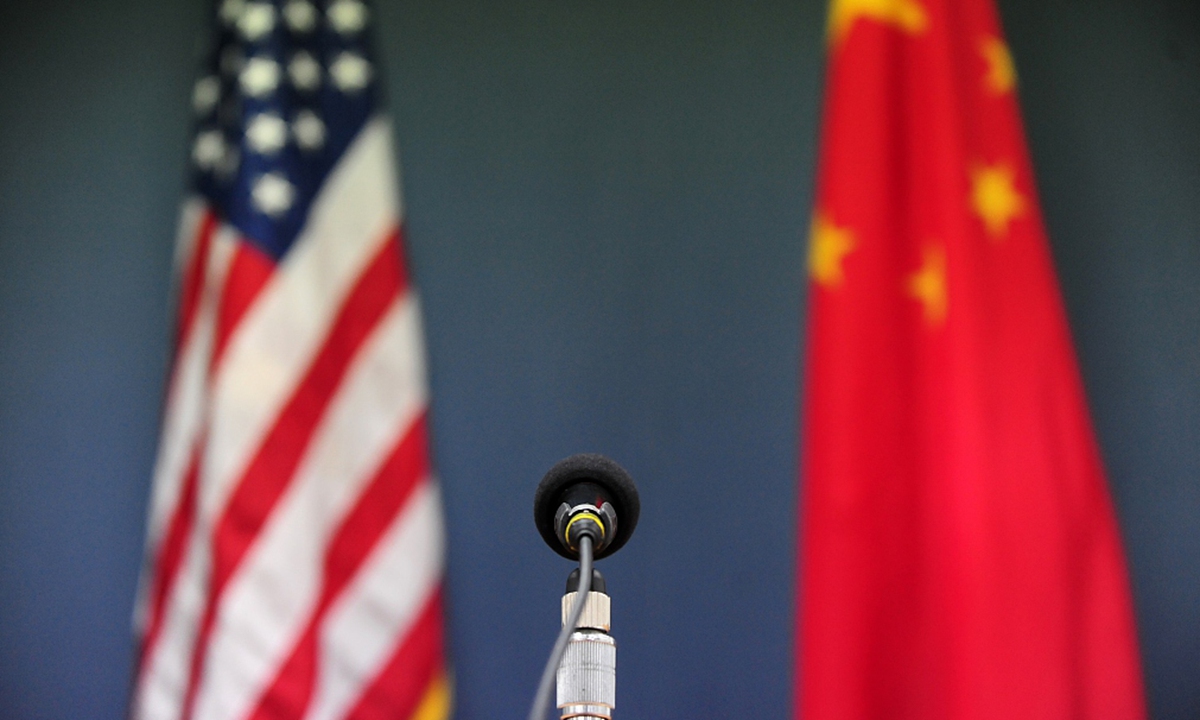Biden is not ‘getting tougher’ on China, will remain positive in China-US tie: AmCham China chairman

China US Photo:VCG
The Biden administration is not getting tougher on the bilateral relationship, while to the contrary, people can expect some more “normalized and more traditional measures of diplomacy,” chairman of the American Chamber of Commerce in China (AmCham China) told the Global Times during an online press conference on Tuesday.
“I don’t think the new administration is increasing its pressure on the bilateral relationship, I think that to the contrary, we can expect some more normalized and more traditional measures of diplomacy,” AmCham China Chairman Greg Gilligan, said in response to questions from the Global Times addressing concerns about a worsening bilateral relationship.
Last week, US President Joe Biden singled out a “growing rivalry with China” as a key challenge facing the US, with his top diplomat describing the Asian country as “the biggest geopolitical test” of this century, according to a Reuters report.
The fact that Biden administration has not removed some of the measures or restrictions put in place by the previous administration doesn’t mean they’re getting tougher, said the chairman, adding that he will “remain optimistic,and has the reason to do so.”
The remarks were made during a new business survey release complied by the chamber on Tuesday.
The report mentioned that US-China tensions were further strained in 2020, but a rising proportion of member companies are optimistic that the relationship will improve in 2021. A total of 98 percent of survey respondents stressed that positive bilateral relations are important for their business growth in China.
Respondents in the survey say that refraining from engaging in aggressive rhetoric and tit-for-tat actions is the most important action the US government can take to help foreign businesses.
“It is hoped that the US and China will meet each other halfway and lift the various unreasonable restrictions placed on China-US cooperation to date as soon as possible, and not create new obstacles,” said Chinese government’s top diplomat, State Councilor Wang Yi on Sunday at his annual press conference.
According to the survey, the outlook among foreign businesses in China remains relatively positive, largely due to the Chinese government’s early and stringent response to the pandemic, an improving investment environment, and anticipation of a more predictable policy environment.
Within the survey, 61 percent of survey respondents both view China as a priority investment destination and are confident that the Chinese government will further open its markets to foreign investment. Moreover, members do continue to see business opportunities in areas such as the globalization of Chinese companies and growth in domestic consumption, but also in new areas such as China’s leading-edge adoption of new digital technologies, said the survey.
Despite widespread reports of pandemic-fueled supply-chain disruptions and bilateral trade tension-inspired reviews of risks and vulnerabilities, the survey results do not indicate a major shift in members’ manufacturing and sourcing outside of China. 83 percent of respondents continue to say their existing manufacturing and sourcing will remain in China.
In latest sign of a burgeoning China-US trade cooperation. China's trade with the US rose by a staggering 81.3 percent in January and February in US dollar terms, data from the National Bureau of Statistics showed on Sunday.
Members also continue to see improvement in China’s enforcement of IP rights, reporting fewer concerns over IP leakage and data security risks than in previous years, read the survey.

